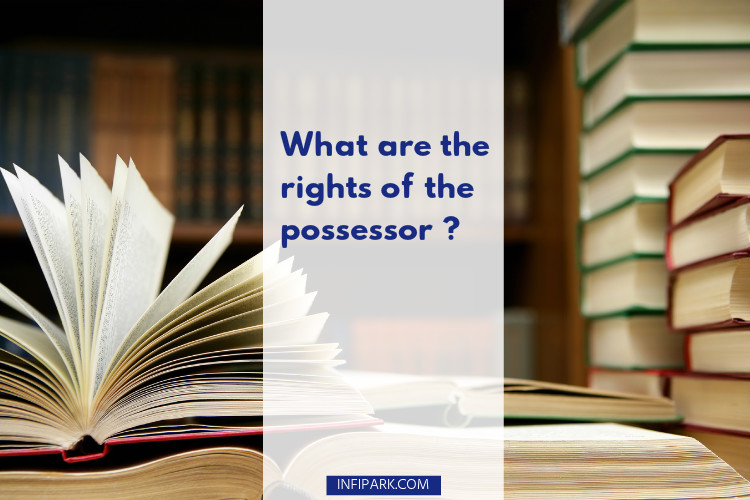What are the rights of the possessor ?
Ans: Rights of the possessor Possession has better claim against all except the real owner.—
`Possession’ is said to be ‘the nine points of the Law’. It means that the person in possession of an object has better claim over it against the whole world except the real owner. This principle has been very well illustrated in Armorie v. Delamirie, In this case, a chimney- boy found a jewel and look it to the shop of the defendant to know its value. The defendant refused to return it to the boy on the ground that the boy was not the owner. The boy was allowed by the court to recover it from the shopkeeper. The boy being the prior possessor had a better claim to it against the whole world except the real owner, and as the shopkeeper’s claim was not on behalf of the owner, the claim of the boy prevailed against him.
In other words, it can be said that the ‘consequences attached to possession are substantially as those attached to ownership subject to the question of possessory rights’. In English law, if a bailee is unlawfully deprived of the goods bailed to him, he has got all the rights of the owner against the person who has so deprived him, though he himself is not responsible to the bailor for such loss.
Possession is a root of title.—Possession is a root of title. After a prescribed period it ripens into a complete and legal title. Possession is substantive right and as such it is transferable and inheritable. The pe-riod of the possession of all the persons claiming under the same pos-sessor is added together to make up the prescribed period of limitation. The persons in possession can sue and get restrained the persons who interfere with their possessions without proving title as owner of the property.
Possession is an evidence of ownership.—Possession is an evi-dence of ownership. The possessor is presumed to be the owner until one proves a better title to it than him. All these rules and the principles have been recognised in almost all the legal systems.










